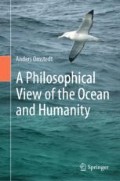Abstract
Many are trying to foresee what will happen in the future. Numerical calculations of changes in society often rely on statistical methods with no capacity to predict the future. Many try to relate various parameters to one another, hoping to gain knowledge of what is to come. Weather forecasting can provide information about conditions some days in advance. It is clear that emissions of carbon dioxide and other anthropogenic GHGs need to be reduced to prevent global warming. However, the global earth system models applied in climate change assessments rely on prescribed emission storylines and their projections are conditional on the assumed forcing. A major question for society is how to develop a greener and more sustainable future. The ocean responds by sending an image of barnacles adhering to a cliff, indicating that humans need to slow down, learn more from the ocean, and build durable and trusting relationships.
Access this chapter
Tax calculation will be finalised at checkout
Purchases are for personal use only
References
IPCC (2013) Climate change 2013: the physical science basis. In: Stocker TF, Qin D, Plattner G-K, Tignor M, Allen SK, Boschung J, Nauels A, Xia Y, Bex V, Midgley PM (eds) Contribution of working group i to the fifth assessment report of the intergovernmental panel on climate change. Cambridge University Press, Cambridge, UK and New York, NY
Meier HEM, Edman MK, Eilola K, Placke M, Neumann T, Andersson HC, Savchuk OP (2018) Assessment of eutrophication abatement scenarios for the Baltic Sea by multi-model ensemble simulations. Front Mar Sci 5(28):440
Omstedt A, Chen D (2001) Influence of atmospheric circulation on the maximum ice extent in the Baltic Sea. J Geophys Res 106(C3):4493–4500
O’Neill BC, Kriegler E, Ebi KL, Kemp-Benedict E, Riahie K, Rothman DS, Solecki W (2017) The roads ahead: narratives for shared socioeconomic pathways describing world futures in the 21st century. Glob Environ Change 42:169–180
Author information
Authors and Affiliations
Corresponding author
Rights and permissions
Copyright information
© 2020 Springer Nature Switzerland AG
About this chapter
Cite this chapter
Omstedt, A. (2020). Scenarios, the Future, and Simplicity. In: A Philosophical View of the Ocean and Humanity. Springer, Cham. https://doi.org/10.1007/978-3-030-36680-3_15
Download citation
DOI: https://doi.org/10.1007/978-3-030-36680-3_15
Published:
Publisher Name: Springer, Cham
Print ISBN: 978-3-030-36679-7
Online ISBN: 978-3-030-36680-3
eBook Packages: Earth and Environmental ScienceEarth and Environmental Science (R0)

